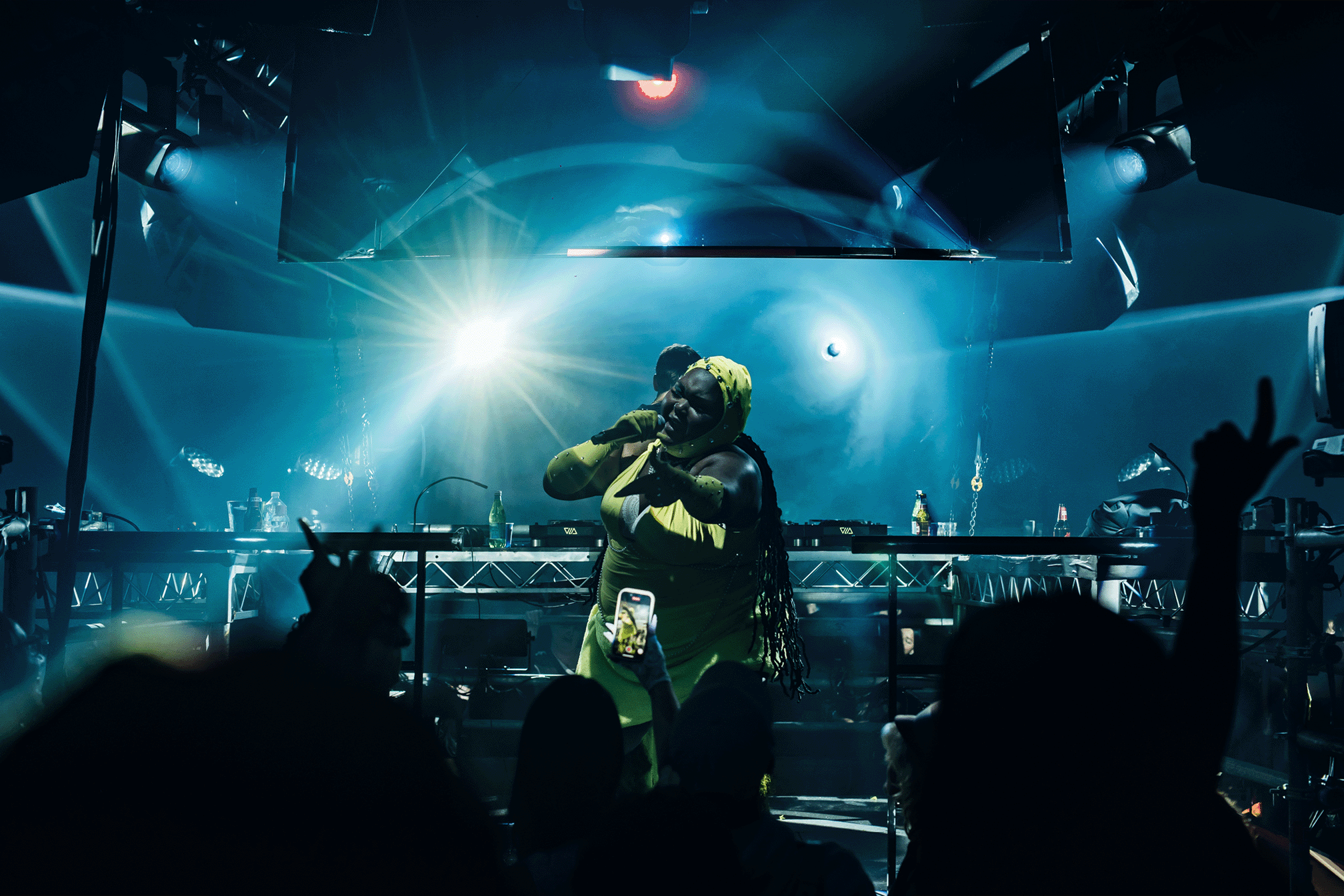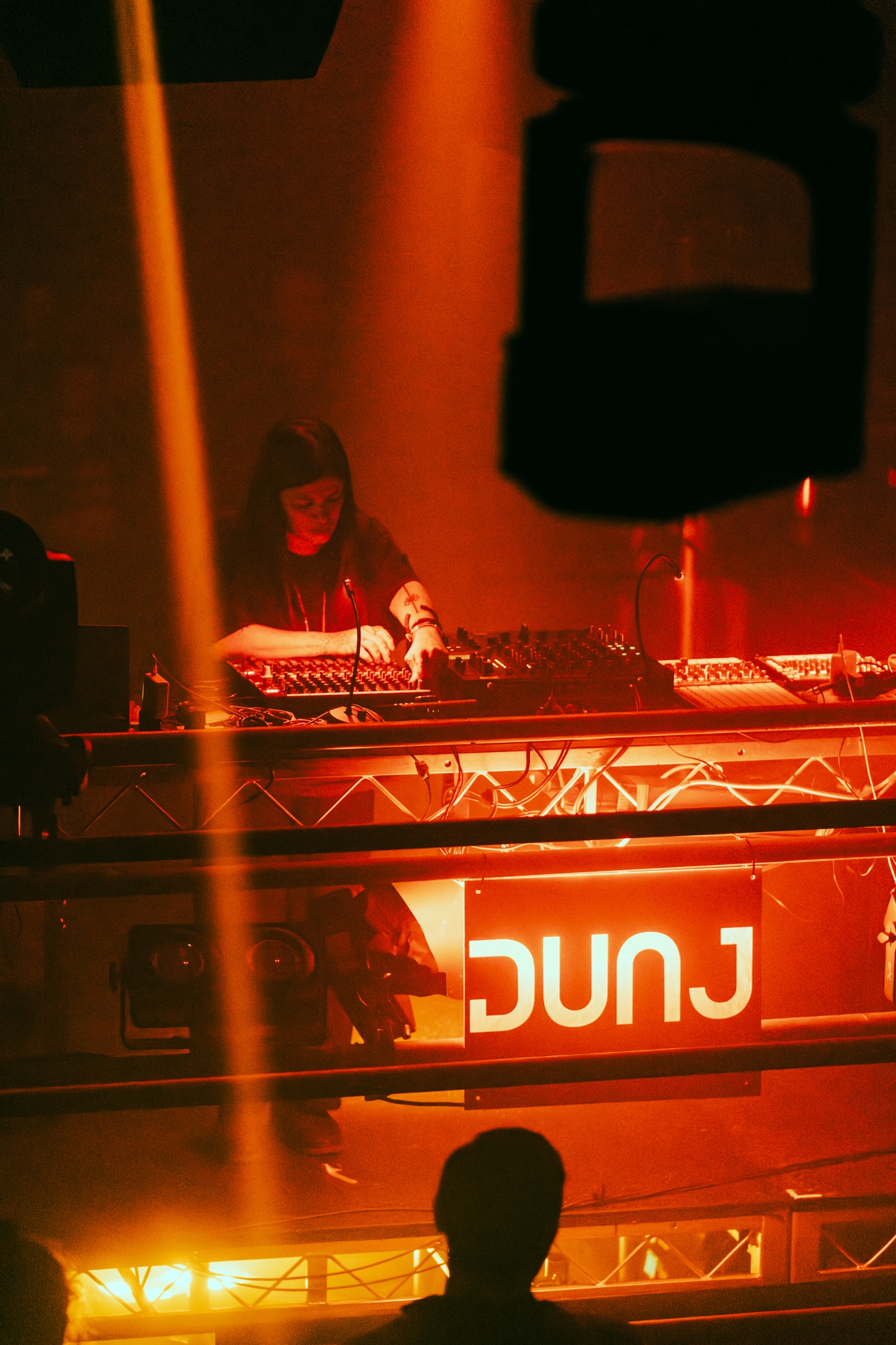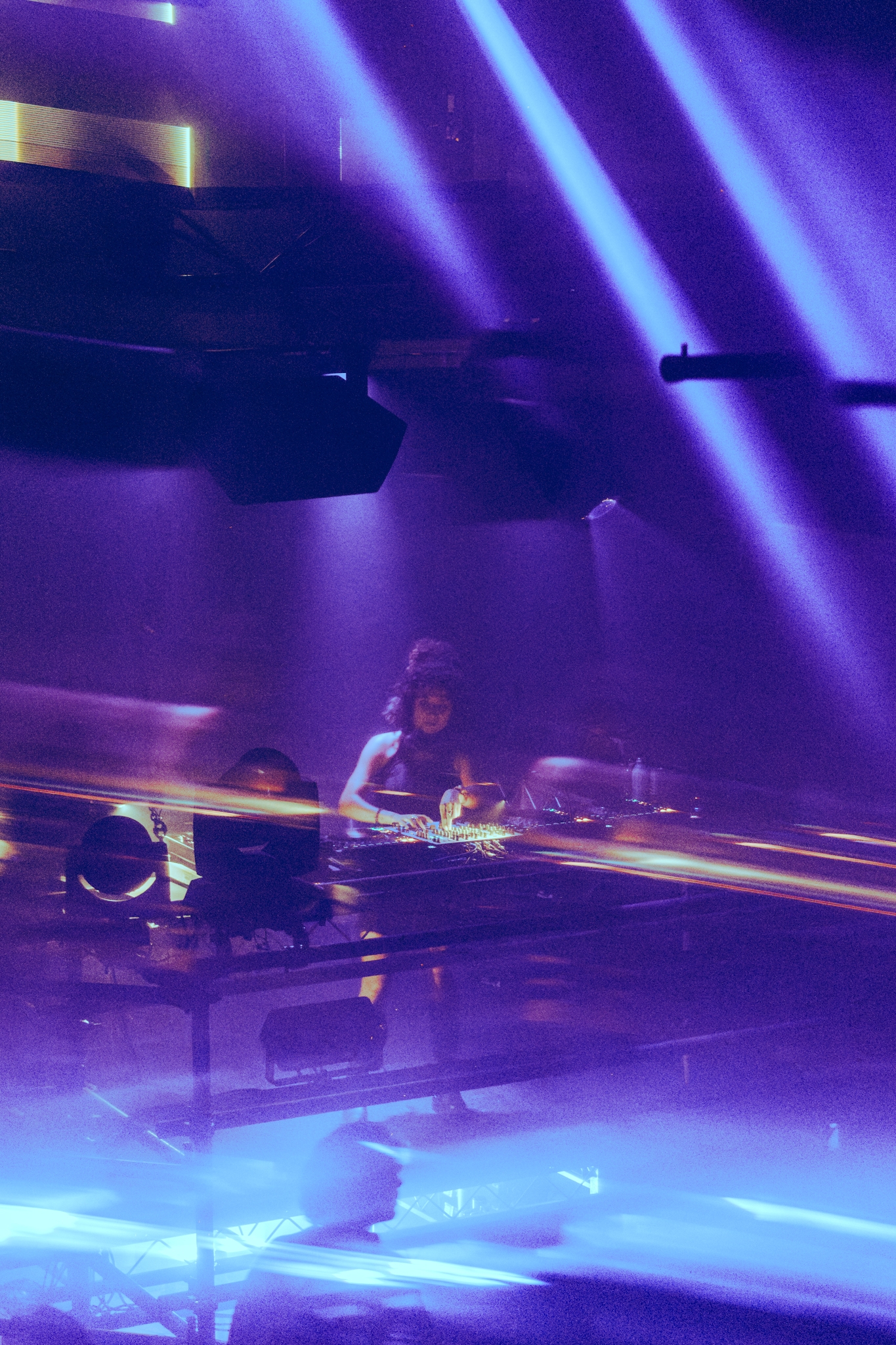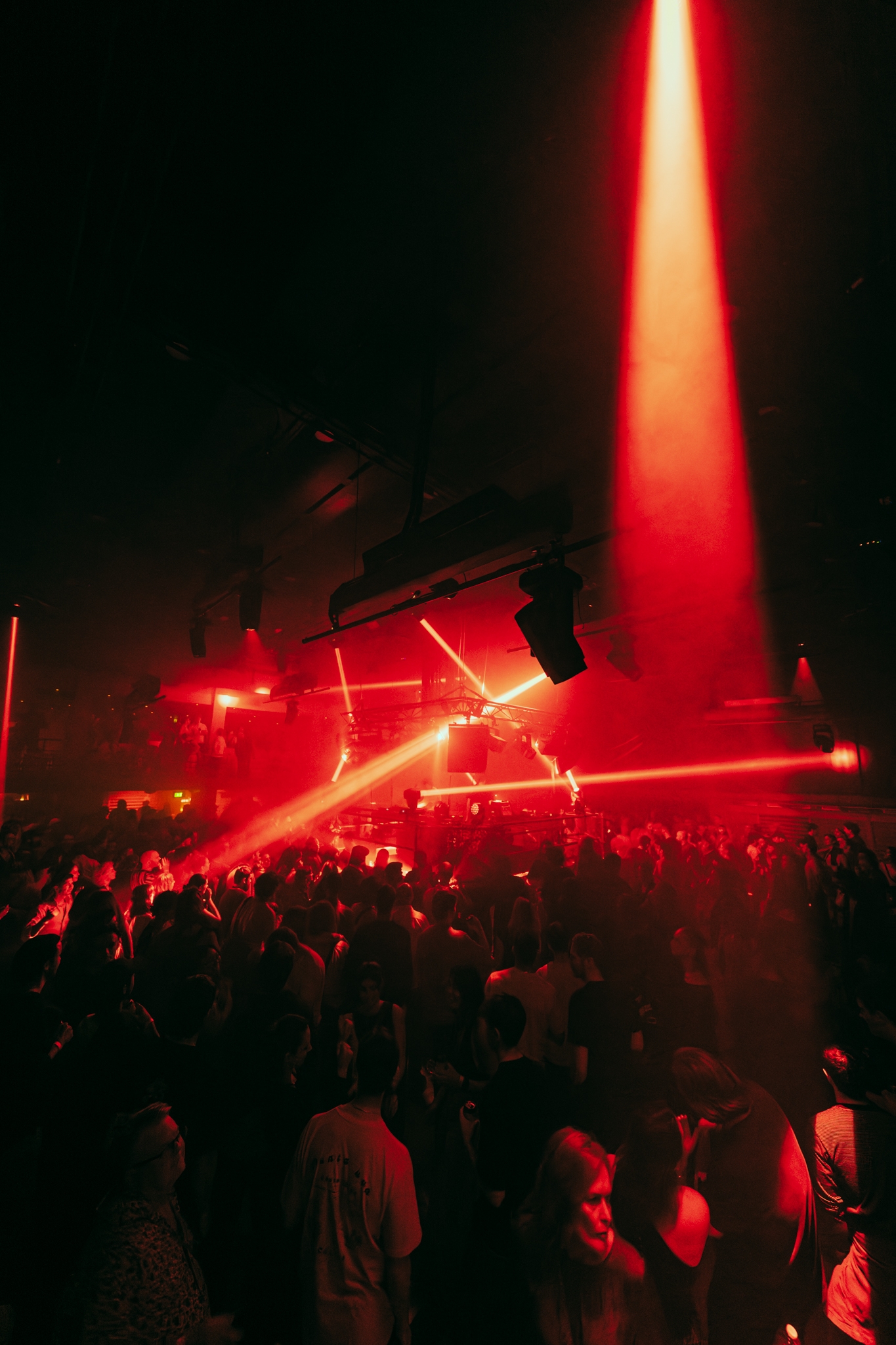 INTERVIEWS
INTERVIEWS
Underground takes main stage at The Sydney Opera House's Studio Parties
For over a decade The Opera House's Studio Parties have stood as much a platform for local promoters as they are a rite of passage for them.
There are few venues more iconic than The Sydney Opera House.
Even on a global scale, The Opera House stands comfortably shoulder to shoulder with the likes of Madison Square Garden, Carnegie Hall, Red Rocks and so many others, not only for its incredible musical and performance legacy, but for its design too.
But while The Opera House is a distinct and even ‘rebellious’ structure compared to those around Gadigal Land/Sydney’s world-class harbour, its ability to rebel has been the subject of much criticism in recent years.
Noise complaints are a hot topic on Gadigal Land, and even our most iconic venue hasn’t been safe from them. In 2017 the venue was fined $15,000 for breaching noise restrictions at an outdoor concert at the venue, successfully launched by the ‘Opera House Concerned Citizens Group’ following a Florence & The Machine concert two years prior.
However, once a year, the Opera House flips its Studio, usually home to cabaret, talks and kids' shows, into a club.
These are the Vivid LIVE Studio Parties.
Having run for over a decade now, the gigs have seen many iconic Gadigal Land tastemakers given the keys to their country’s most iconic and revered venue. From Mad Racket to Club Kooky, GoodGod to Astral People and Future Classic too, the Studio Parties are as much a platform for local promoters as they are a rite of passage for them.
As Sydney’s lockout laws decimated its clubbing scene in 2014 and beyond, many of the city’s more culturally-focused visionaries moved into the underground. The city was, in many ways, no longer built for what they wanted. Instead of being totally abandoned by what their city has to offer, however, the Studio Parties serve as a means of honouring the people and promoters making Gadigal Land’s clubbing, dance and experimental electronic music scene one of the most vibrant in the world, for all to see.
This year, those keys were handed to a series of trusted promoters, including Barney Kato, Trackwork, dstreet, Wavyland, DUNJ, House of Mince and Mad Racket.
Read: Artists & promoters sign open letter urging Vivid to drop Airbnb amid growing calls for boycott
To reflect on this year’s celebration, what it means for their city’s culture and their hopes for the future commercial successes of the music and people they hold so dear, Mixmag ANZ caught up with a selection of these promoters. In light of the ongoing campaign to expose Vivid Sydney’s partnership with Airbnb, a company that activists claim is ‘artwashing apartheid’, their thoughts also explore the influence that global brands can have on local music communities.

DUNJ
Q: The Opera House is an incredible venue, but how does it compare to clubs around the city?
DUNJ: As a venue & party space, the Opera House Studio party area is right up there with the top clubs in Sydney when referring to production. When considering location, not many clubs come close to the Opera House. Nothing compares to leaving the event space and walking right out into Circular Quay, with the Harbour Bridge right in front of you!
Understandably, the Opera House can’t be compared to other clubs when it comes to community and cultural support, as the Studio Party space only operates for 2-3 weeks, and clubs support the community year-round. It could be interesting for the opera house to step up with more regular Studio programming?!
Q: What is it about performing at The Opera House that you think is so huge for dance and electronic music artists?
DUNJ: The Opera House is a world-renowned and widely recognised venue, performing at such an esteemed venue provides a considerable amount of validity to electronic and dance music artists. In recent times, we have gone to the Opera House to see Herbie Hancock, Reggie Watts, Khruangbin, Flying Lotus, Penn & Teller, Ólafur Arnalds, Amon Tobin & Sigur Rós to name a few. To play there is not just to perform, but to join an ongoing conversation that shapes culture and the cultural history of Sydney
Q: The venue has, traditionally, been seen as a home for more conservative art appreciation, particularly given its proximity to The Toaster and its history of noise complaints. What do you think the Studio Parties do for Gadigal Land/Sydney’s dance culture more broadly?
DUNJ: These studio parties make Sydney’s dance culture feel seen, albeit only for 3 weekends. For the dance music community, whose sounds are often born in underground clubs and warehouses, this iconic stage offers both a graduation and a transcendence. It’s certainly tiring to hear the entitled retort of residents who made a conscious decision to move so close to a world-renowned music and entertainment venue. It’s clear to most that it's not the loud music that's out of place, but rather their expectation of quiet.
Q: What is your favourite part about organising an event at The Opera House when compared with other spaces you frequent?
DUNJ: DUNJ primarily uses DIY spaces for our events, meaning we often set up and organise all production relating to the event, including sound systems, lighting, staging, decorations, door resources, hospitality requirements, DJ and performance equipment, etc. So for us, a huge part of the enjoyment with running an Opera House gig comes from not having to set up and pack down directly before and after the event.
Q: Vivid Sydney has recently come under fire for its partnership with Airbnb, with many artists and promoters signing an open letter, and many continuing to pull out of the festival altogether. How have you navigated this & how did you decide to continue with your show?
DUNJ: While we’re proud to showcase our artists at the Sydney Opera House as part of this program and very grateful and excited for the opportunity, we feel it’s important to mention the controversy surrounding the festivals poor choice of sponsors/partners: DUNJ opposes Airbnb’s sponsorship of Vivid due to its role in listing properties in illegal Israeli settlements in occupied Palestinian territory. Airbnb’s sponsorship of this festival has tarnished and depleted the cultural capital and importance of this festival. We know the Opera House program is managed separately, operates under its own budget, has its own decision-making process/team and its own set of sponsors, and our participation is through this stream. But even with that separation, we’re not blind to the broader implications of being involved. We can’t ignore that this celebration is taking place under a shadow. Airbnb’s involvement with Vivid reflects a larger pattern of corporate partnerships being prioritised over basic human rights. That’s not something we can gloss over.
DUNJ doesn’t exist without the unpaid hours, shared resources and quiet resilience of its crew and collaborators. This event at the Opera House is a celebration of that, a milestone and graduation from the bunkers & drains of Sydney to the most iconic venue in the country, of people building something genuine and vital in Sydney’s music scene, often with very little support.
We’re calling for Airbnb to be dropped as a sponsor. The involvement of Airbnb has tarnished the value we and our community held in the festival. We believe better choices are possible and necessary.

Tangela, dstreet
Q: The Opera House is an incredible venue, but how does it compare to clubs around the city?
TANGELA: It’s one of Eora’s best-kept club secrets, our own little super club that we get access to once a year. I’ve been attending the studio parties for over 10 years, since Goodgod Super Club had its residency here and have always been blown away by the fact that the underground music scene is granted access to this calibre of venue, which would normally be out of reach for DIY parties like ourselves.
Q: What is it about performing at The Opera House that you think is so huge for dance and electronic music artists?
TANGELA: It’s one you can tell your mum about! It’s not often that independent artists from the underground are given the kind of recognition you receive by performing at a cultural institution such as the Opera House. To have your music or artistry acknowledged by a government institution is really groundbreaking for electronic music artists, especially in a city that has a history of oppressing this community. You see how many Eora-based artists are continually relocating to other cities or countries in order to gain recognition. This kind of platform is huge in building the reputation of our own music and arts community.
Q: The venue has, traditionally, been seen as a home for more conservative art appreciation, particularly given its proximity to The Toaster and its history of noise complaints. What do you think the Studio Parties do for Gadigal Land/Sydney’s dance culture more broadly?
TANGELA: Giving this platform to electronic music validates its existence in our city. A step in the right direction towards a reality where electronic music is celebrated, not squashed.
Q: What is your favourite part about organising an event at The Opera House when compared with other spaces you frequent?
TANGELA: The idea of running events outside a DIY space has been interesting for us, as this is the only licensed venue we’ve ever thrown a party in! We had questioned if the authenticity and heart of dstreet remains in a more commercial setting, but the partnership we’ve had with the Sydney Opera House has proven to be really special. Having the support of a government institution is incredibly rare for underground music and has meant that this year we could look to our neighbours in Asia and bring over two artists we admire greatly, continue to strengthen the connections between our countries into the future. My favourite part about organising events here is the trust and support we receive and full curatorial autonomy to deliver our vision.
Q: Vivid Sydney has recently come under fire for its partnership with Airbnb, with many artists and promoters signing an open letter, and many continuing to pull out of the festival altogether. How have you navigated this & how did you come to the decision to continue with your show?
TANGELA: The Studio Parties are part of Vivid Live, which is funded by the NSW government as a program curated by the Sydney Opera House and does not have any affiliation with Airbnb. It’s important to make the distinction here between Vivid Live and Vivid Sydney, as the sponsorships are not the same. As soon as we were made aware of this sponsorship, we entered into discussions with many stakeholders in the festival, seeking to understand exactly what Airbnb’s role is. We learnt that Airbnb is the ‘Community Partner’ for Vivid Sydney, and although Vivid Live is financially and administratively separate, the impact of this association has been heavy. As a community-driven party, our values are rooted in supporting those who are marginalised, in creating spaces of resistance and sanctuary, and in challenging the status quo. Being able to provide opportunities for independent artists and celebrate diversity was one of our biggest motivators to run this event, and will continue to be the driving force behind our parties. We have signed the open letter to Vivid Sydney, urgently asking Vivid Sydney and our state government to remove Airbnb as a sponsor, as companies complicit in Genocide have no place in cultural spaces.

Utility, Trackwork
Q: The Opera House is an incredible venue, but how does it compare to clubs around the city?
UTILITY: The studio is a sick venue. I have a soft spot for it, probably because the red carpet in there reminds me of the CTA Business club. What used to be a bizarre Siedler-designed 70s time capsule under the MLC Centre. We used to drink there regularly and even programmed a Vivid 2023 show there - however new management has taken over and began the process of cooking it in the most Sydney ways possible - refurbishing the Lynchian qualities of the place, bringing in craft beer, new rapidly changing staff management as opposed to the old crew, etc.
Q: What is it about performing at The Opera House that you think is so huge for dance and electronic music artists?
UTILITY: Sydney Opera House is an iconic venue and one we’re excited to present this program in, as our program dramatically contrasts what would usually be expected in such a space. It’s not usually thought of as a space for club music, but I couldn’t think of anything better than finishing a set of club music and catching a ferry.
Q: The venue has, traditionally, been seen as a home for more conservative art appreciation, particularly given its proximity to The Toaster and its history of noise complaints. What do you think the Studio Parties do for Gadigal Land/Sydney’s dance culture more broadly?
UTILITY: Noise complaints are a Sydney-wide problem, failing to recognise that the music being reacted to, whether that be crowd noise or club/venue noise, inherently enriches the culture of public spaces, and in turn raises the real estate prices through the cultural capital that the market exploits and takes from. Having these sorts of events within the city are extremely possible, and we commend the great team at the Opera House for continuing to build on this, and also for supporting small independent labels doing meaningful and authentic local work like us.
Q: Vivid Sydney has recently come under fire for its partnership with Airbnb, with many artists and promoters signing an open letter, and many continuing to pull out of the festival altogether. How have you navigated this & how did you come to the decision to continue with your show?
UTILITY: Trackwork is opposed to Vivid’s partnership with Airbnb relating to their property listings on illegally occupied Palestinian territories, and we call for this partnership to end. As soon as we heard about this sponsorship, we looked into it in depth, expressing our concerns in a range of ways across social media but also behind the scenes in raising these issues with various stakeholders across Vivid and DestinationNSW.
Although Vivid and DestinationNSW have regrettably partnered with Airbnb, the Sydney Opera House program, which includes our event, is financially and administratively separate. Although this doesn’t completely remove brand association, this event presents very real opportunities, especially for our local artists. Our artists have invested time and money to travel from regional areas, inviting friends and family who rarely get the opportunity to see them perform and work.
Our small independent label runs off the tireless work of our artists, crew and freelance teams - much of which is volunteer, in-kind and based on a deep generosity which is at the focus of this event. It’s our 5th birthday and we’re celebrating the people who we believe are making real change happen in Sydney’s music community.
We believe this festival has been tarnished by our state government’s disregard for the rights of the Palestinian people, and we call for Airbnb to be removed as a sponsor immediately.

Barney Kato
Q: The Opera House is an incredible venue, but how does it compare to clubs around the city?
BARNEY KATO: Sydney's clubs and party spaces are all important for different reasons and foster their own communities, I see the Opera House Studio as a short-term part of the Sydney ecosystem that adds a different dimension to it. Music and clubs are not a competition, we're all part of one community.
Q: What is it about performing at The Opera House that you think is so huge for dance and electronic music artists?
BARNEY KATO: Even though it gets more and more mainstream, dance music / electronic music is still an outsider / alternative community to the mainstream. It's not often artists can explain the importance of performing in a venue to someone outside the community, but to be able to say you've played at or worked with an iconic venue like the Opera House helps them understand what we do is considered important.
Q: The venue has, traditionally, been seen as a home for more conservative art appreciation, particularly given its proximity to The Toaster and its history of noise complaints. What do you think the Studio Parties do for Gadigal Land/Sydney’s dance culture more broadly?
BARNEY KATO: Our city doesn't have many venues with the size and reach of the Studio and what I've noticed which impresses me is the studio parties bring people from alot of different backgrounds, orientations, scenes, areas of the city etc together in one space for a few nights a year and I think that's really lovely and positive for Eora and the dance music community.
Q: Vivid Sydney has recently come under fire for its partnership with Airbnb, with many artists and promoters signing an open letter, and many continuing to pull out of the festival altogether. How have you navigated this & how did you come to the decision to continue with your show?
BARNEY KATO: I wasn't contacted about the open letter, but I agree Vivid Sydney should drop Airbnb as a sponsor. When we raised concerns with the Opera House, we were assured Vivid Live at the Opera House shares the Vivid name but has completely separate sponsors from Vivid Sydney.
-
Jack Colquhoun is Mixmag ANZ's Managing Editor, find him on Instagram.


